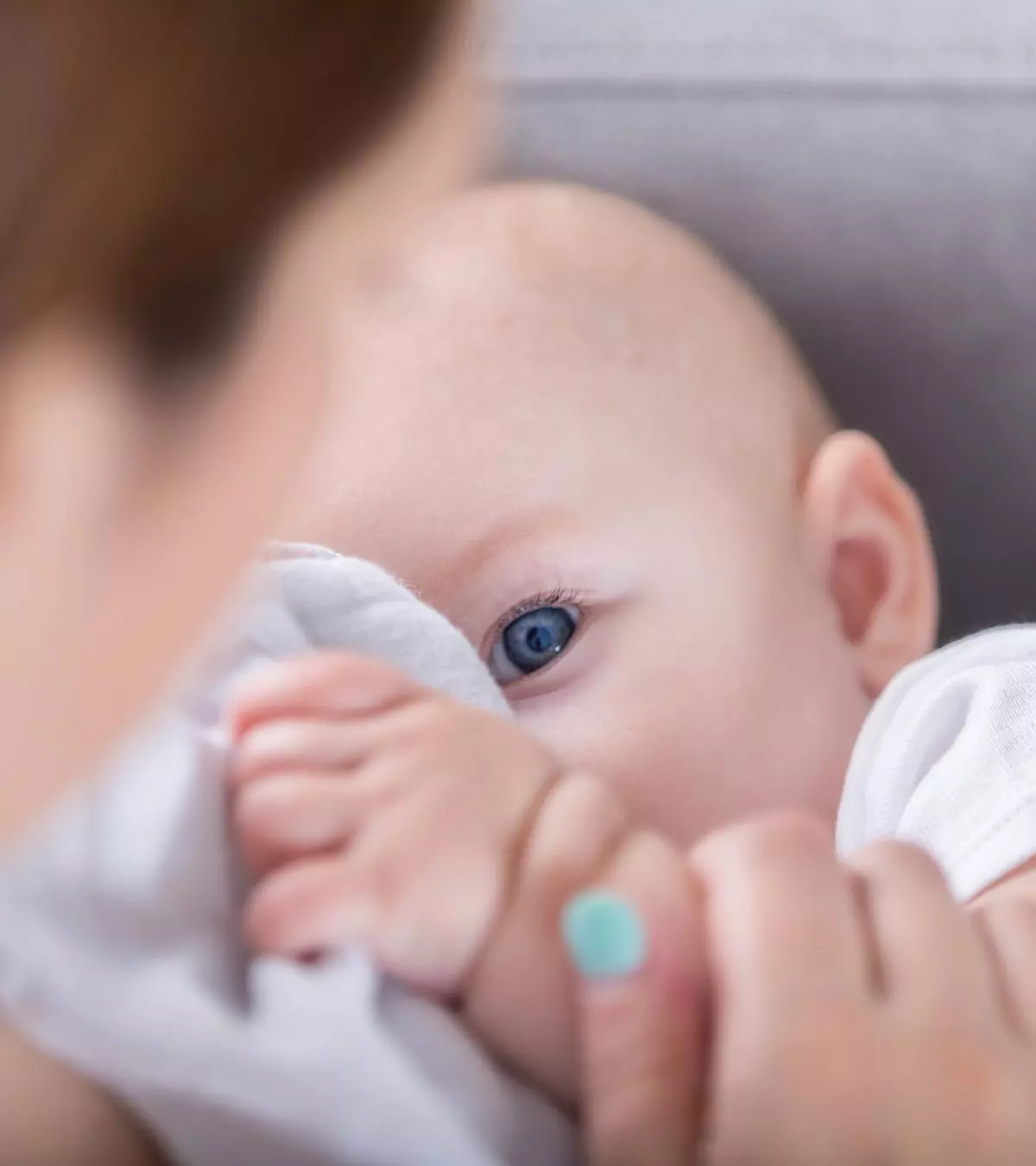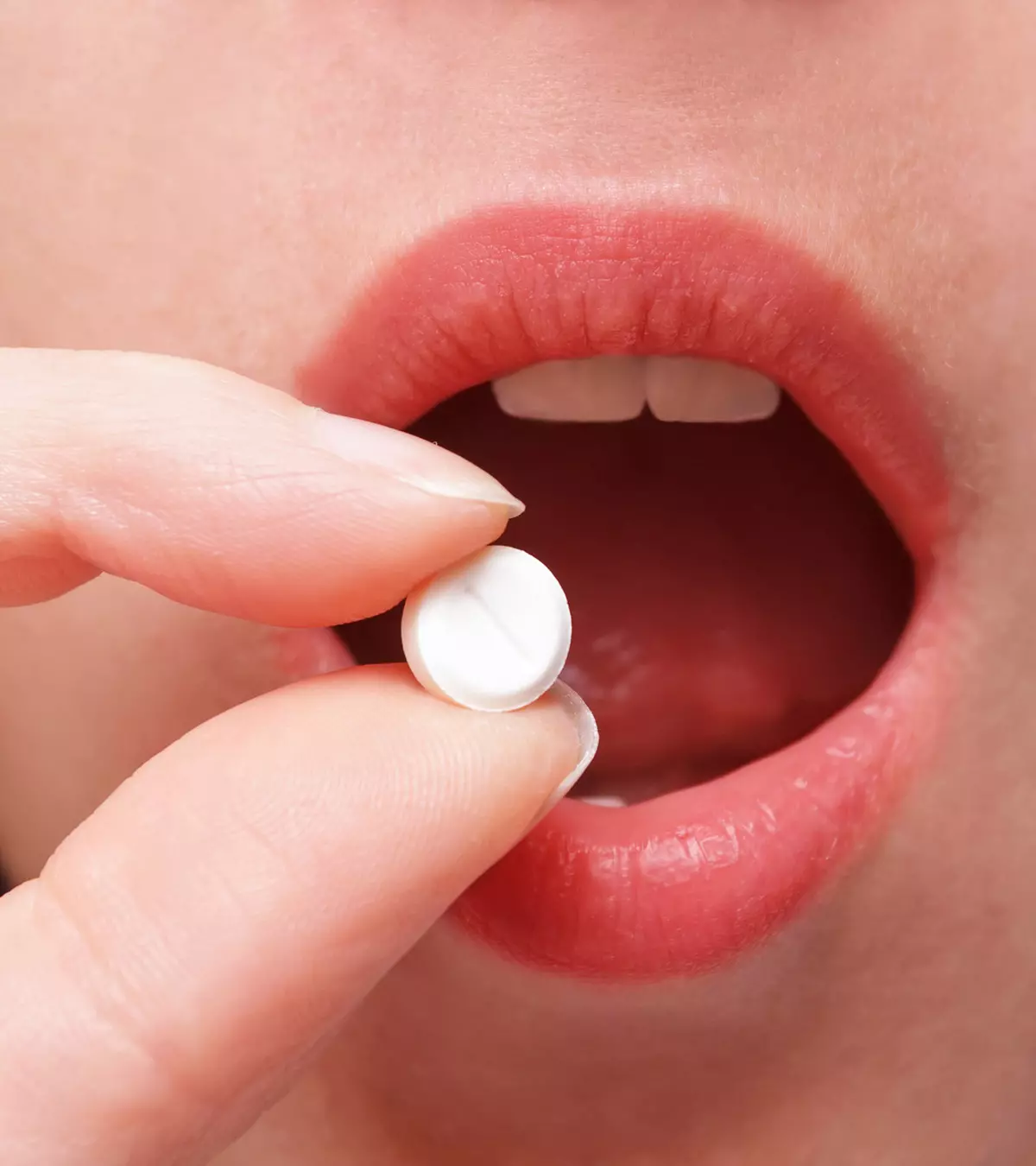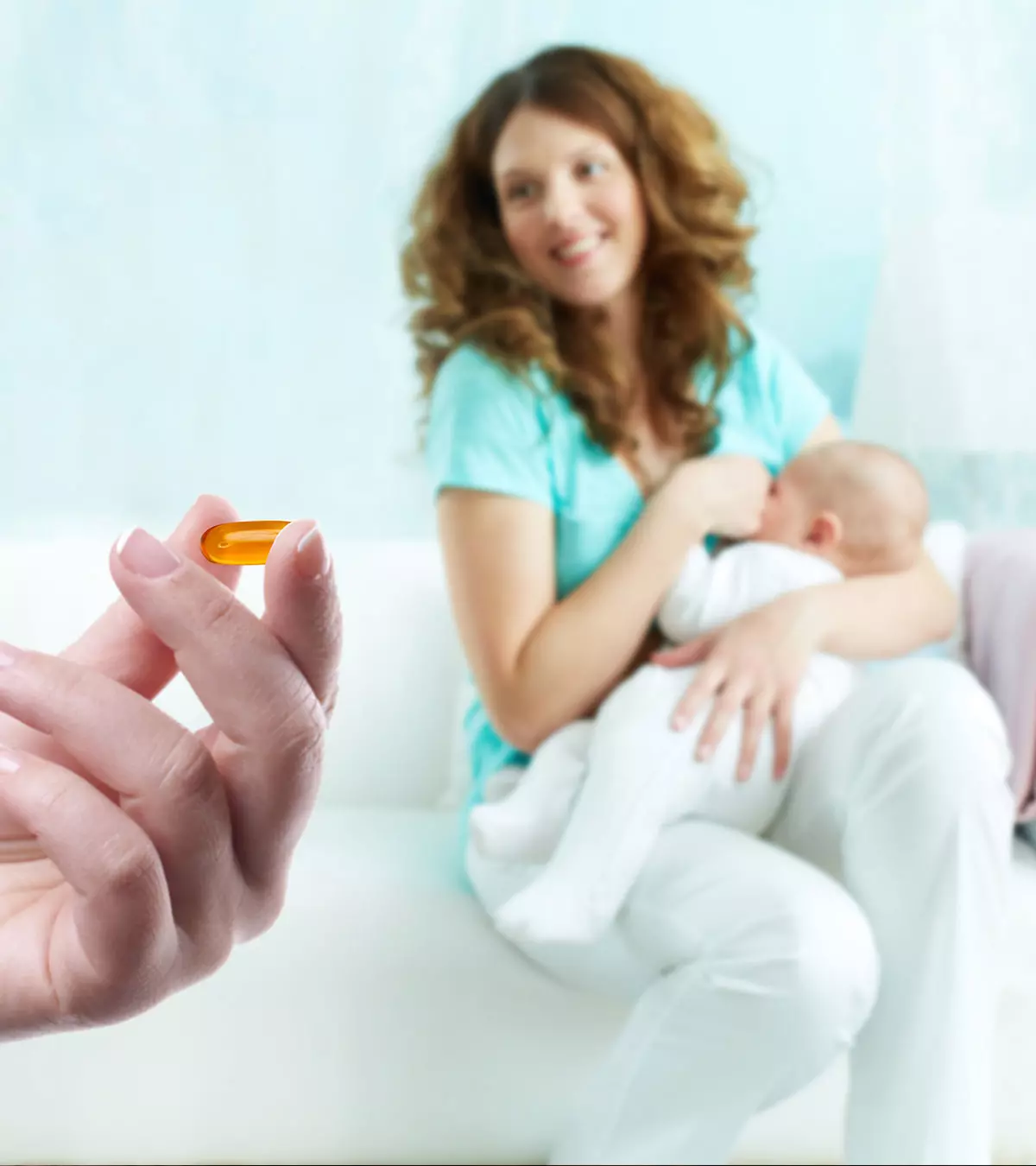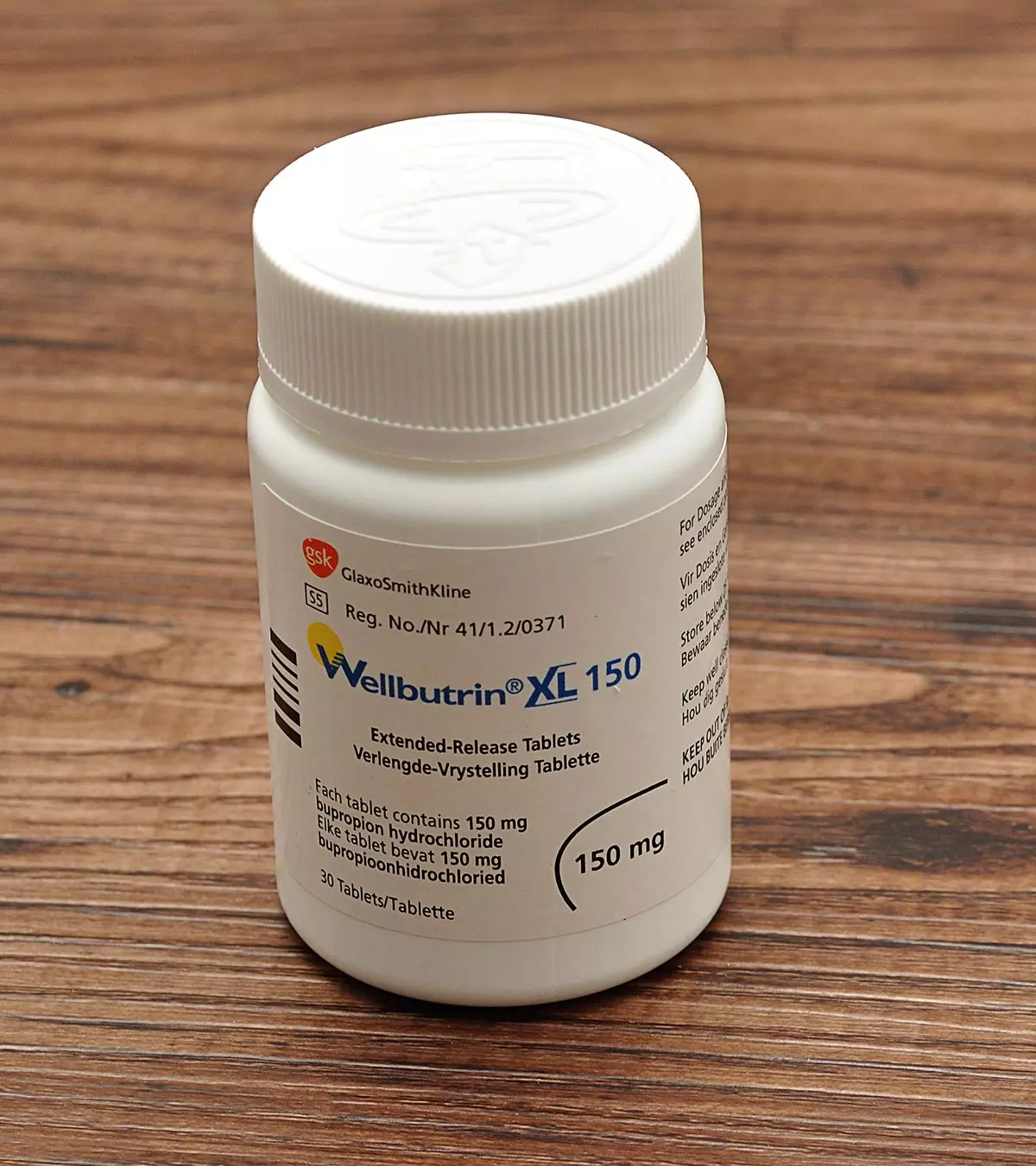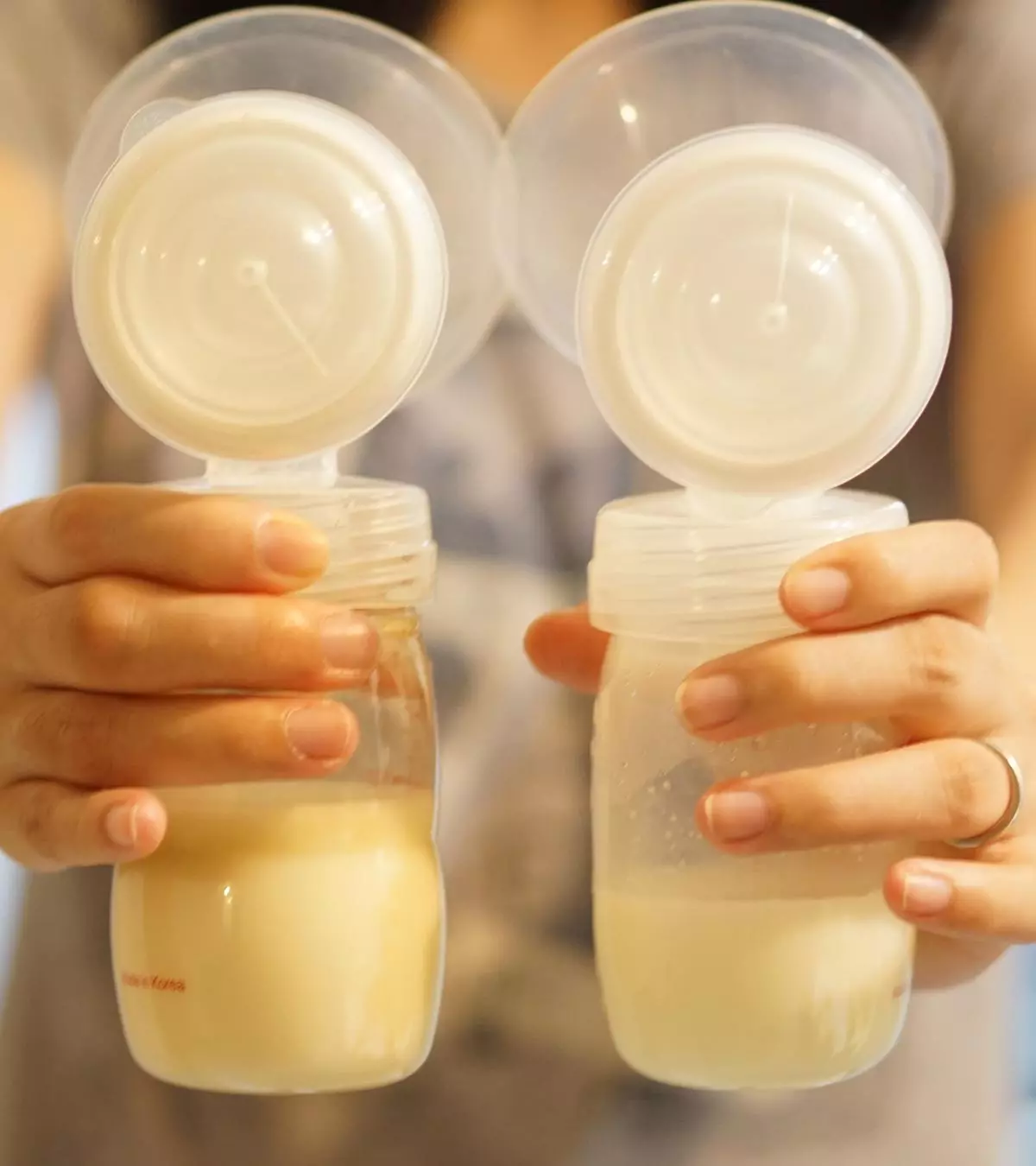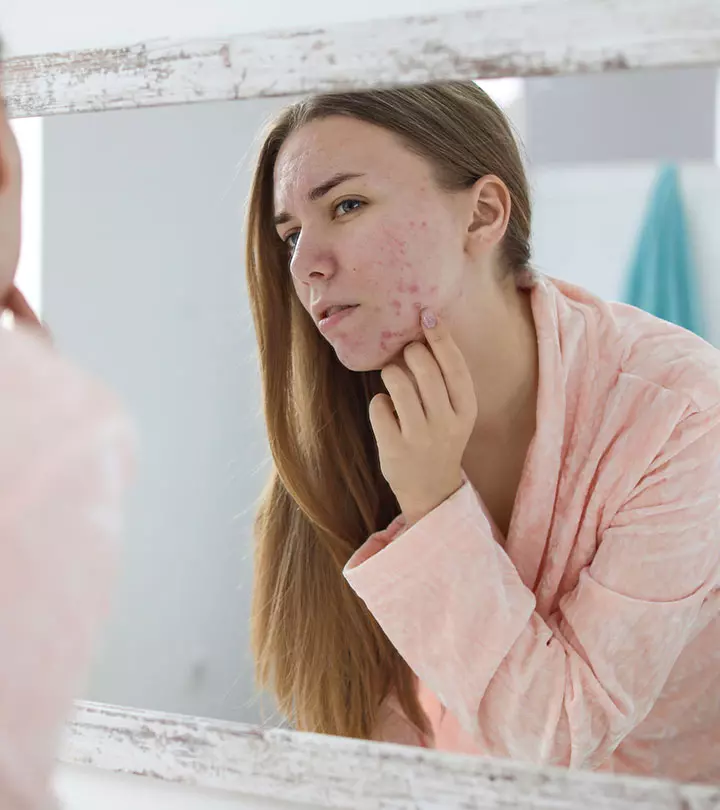
Image: ShutterStock
For women prone to acne, it is not uncommon to experience breakouts during and after pregnancy. In this post, we talk about acne and breastfeeding. Acne occurs when dead skin and oil block the hair follicles. Bacterial growth multiplies in the blockage, leading to pimples or acne. While acne most commonly occurs on the face, it may also occur on the neck, chest, back, and arms (1). While over-the-counter (OTC) acne medicines may be working well for you, you may want to be doubly sure regarding their safety while using them during breastfeeding. Read on as we talk about the causes, home remedies, and safe treatment options for acne when breastfeeding.
Key Pointers
- Acne during breastfeeding can be caused by hormonal changes, lack of sleep, stress, dehydration, and unhealthy foods.
- To prevent acne, drinking water, following a skincare routine, having a healthy diet, using tea tree oil, probiotics, basil oil, copaiba oil, honey, and coconut oil may be helpful.
- Consult a doctor before using topical ointments containing antibiotics, benzoyl peroxide, azelaic acid, or salicylic acid while breastfeeding.
- Avoid using aspirin to make at-home salicylic acid.
- Lauric acid found in human breast milk and coconut oil has potential for treating acne.
Can Breastfeeding Cause Acne?
A rise in serum androgen levels in pregnancy leads to increased sebumiA oily substance secreted by sebaceous glands, which acts as a lubricant and protects the skin. production and hence causes acne (2). This continues after delivery too. After delivery, it takes some time before the hormones settle down, and hence acne might occur. Moreover, for new mothers reduced sleep and increased stress may also cause pimples.
If your skin is prone to acne, you are likely to have it during breastfeeding as well (3). However, not all women who are breastfeeding will have the breakouts.
Causes Of Acne When Breastfeeding
Although it is suggested that maternal hormonal fluctuations or changing levels of estrogen and progesterone levels may lead to acne, the exact cause is still unknown (4). Below are some of the possible reasons for acne in women who are breastfeeding.
- Lack of sleep and increased stress (5)
- Dehydration
- Fried, spicy foods, moderate processed foods
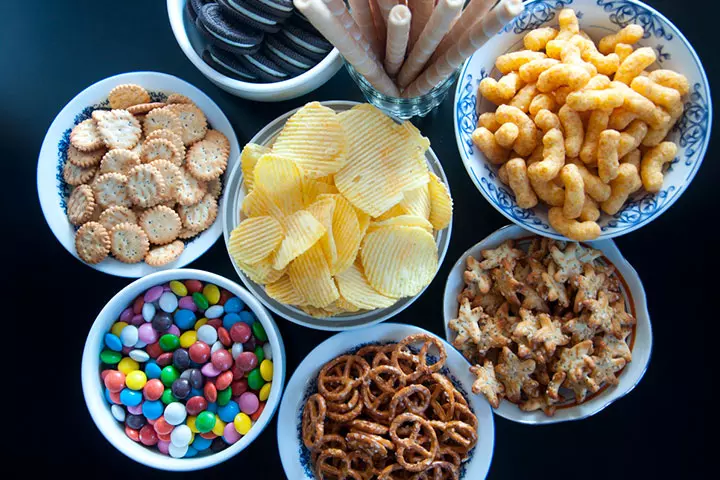
 Quick tip
Quick tipSome of the above causes are generic and might cause acne irrespective of whether a woman is breastfeeding or not.
Home Remedies For Acne During Breastfeeding
Developing a skin-care routine and sticking to it can help in the prevention and recurrence of pimples.
The following measures might help you deal with acne (6) (11).
- Drink eight to ten glasses of water every day.
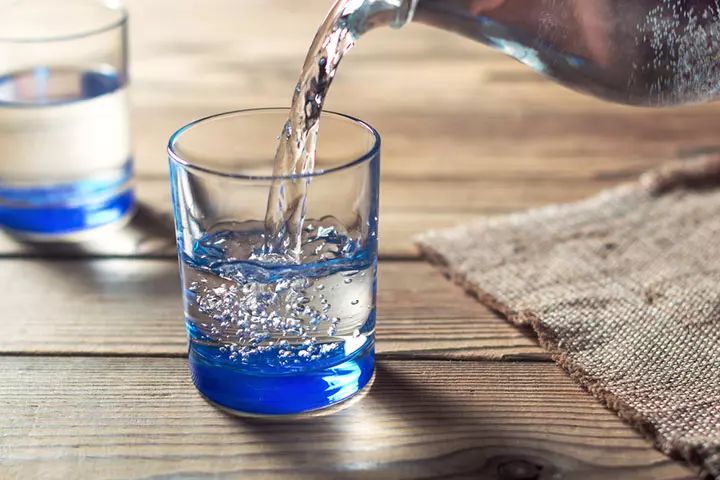
Some herbs and natural remedies are used for acne. However, it is not known if these are safe while breastfeeding. Use these after consulting your doctor.
- Applying tea tree oil is considered effective (12)
- Consumption of probiotics might help reduce acne (13)
- Essential oils, like basil oil and copaiba oil, might also be helpful (14)
- Drinking green tea (14)
- Topical application of citrus fruits (15)
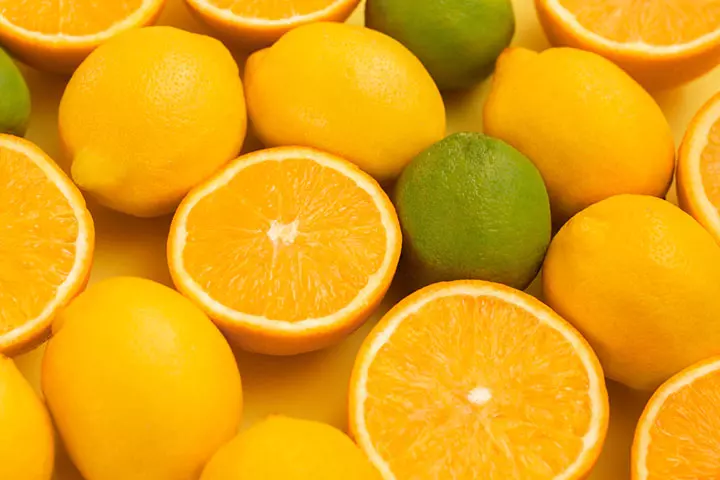
Everything labeled under the tag of natural may not be safe when you are breastfeeding. Therefore, it is best to consult a doctor before using these home remedies.
 Be watchful
Be watchfulAcne Treatment When Breastfeeding
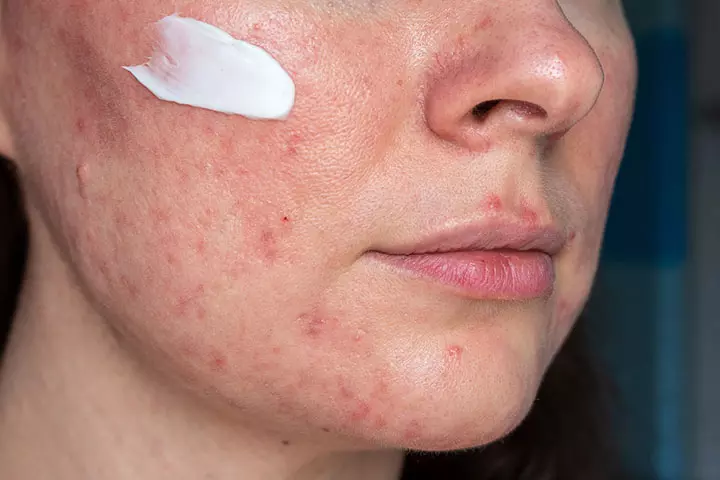
If the acne outbreak is severe, then the doctor may suggest a treatment plan that is safe during breastfeeding. The first line of treatment is the topical application. Ointments accumulate in the follicles and treat the acne due to their anti-bacterial and anti-inflammatory properties.
The doctor might prescribe ointments containing one or a combination of the following drugs (21).
- Antibiotics like erythromycin, clindamycin, metronidazole, dapsone, etc.
- Benzoyl peroxide
- Azelaic acid
- Salicylic acid
All these medicines are available as OTC drugs, but do not use them without consulting your doctor.
Severe cases of acne, like cystic acneiLarge, painful, and pus-filled acne that develop deep within the skin follicles and leave scars. , might not cure with topical ointments alone. In such cases, the doctor might recommend the use of oral medications or light therapy (21). Oral medications include:
- Oral macrolidesiA class of antibiotics that help manage bacterial infections by inhibiting protein synthesis in bacteria. (erythromycin or azithromycin)
- Cephalexin
- Zinc compounds
Blue-violet or red-light phototherapyiA technique that involves exposure to lightwaves, usually used to treat specific skin conditions. is used as a separate treatment entity or is administered along with topical or oral medications.
 Quick tip
Quick tipTreatment To Avoid When Breastfeeding
Topical application and oral medications containing the following drugs are contraindicated for nursing mothers (21).
- Hormonal therapy
- Co-trimoxazole
- Fluoroquinolones
- Topical and oral retinoids
Does Breast Milk Clear Acne?
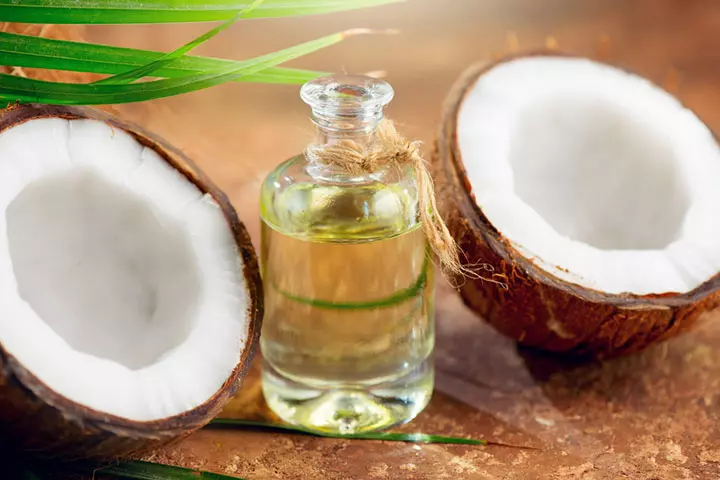
A study noted that human breast milk contains a natural compound called lauric acid, which could have the potential to treat acne (22). Lauric acid is also found in coconut oil. Therefore, you may use virgin coconut oil as well.
Frequently Asked Questions
1. When does acne that occurs while breastfeeding goes away?
The duration of postpartum acne can vary significantly from one woman to another. It is often caused by fluctuations in hormone levels that occur after giving birth, which can take some time to stabilize (23).
2. Can I get acne when I stop breastfeeding?
Yes. You may develop acne, or your existing acne might worsen after you stop breastfeeding (23).
3. Can I use salicylic acid while breastfeeding for acne?
It is generally considered safe to use salicylic acid while breastfeeding, as only a small amount of it is absorbed through the skin and is unlikely to affect breast milk. However, avoid applying it to body areas that might come into direct contact with the infant’s skin or where the infant might lick it (24).
4. Can I use retinol on my face while breastfeeding for acne?
Maternal use of topical retinoids (a synthetic form of vitamin A) is generally safe for breastfeeding infants, as only a small amount is absorbed into the bloodstream. However, speak to your doctor before use to ensure their safety. To reduce the risk of exposure to your baby, avoid applying the product to your breasts and keep it away from your baby’s skin (25).
Acne while breastfeeding is not uncommon and is mostly temporary. The hormonal imbalance during postpartum and breastfeeding, the stress of giving birth and caring for the child, sleeplessness, etc., are some common causes of acne while breastfeeding. However, refrain from using any OTC ointments or prescription drugs without consulting your gynecologist or dermatologist. Proper hydration, a well-balanced diet, and avoiding junk food can help get rid of acne during breastfeeding. Check with your doctor if you have any concerns about acne while breastfeeding.
Infographic: Causes Of Acne During Breastfeeding And Home Remedies
Acne may not be specific to breastfeeding, but certain factors might make you prone to developing it during lactation. However, acne is typically an unalarming condition, and you can adopt a few self-management techniques to cope with it. Explore the causes and home remedies to deal with acne during breastfeeding. Illustration: Momjunction Design Team
Illustration: Acne And Breastfeeding: Causes Treatments And Home Remedies
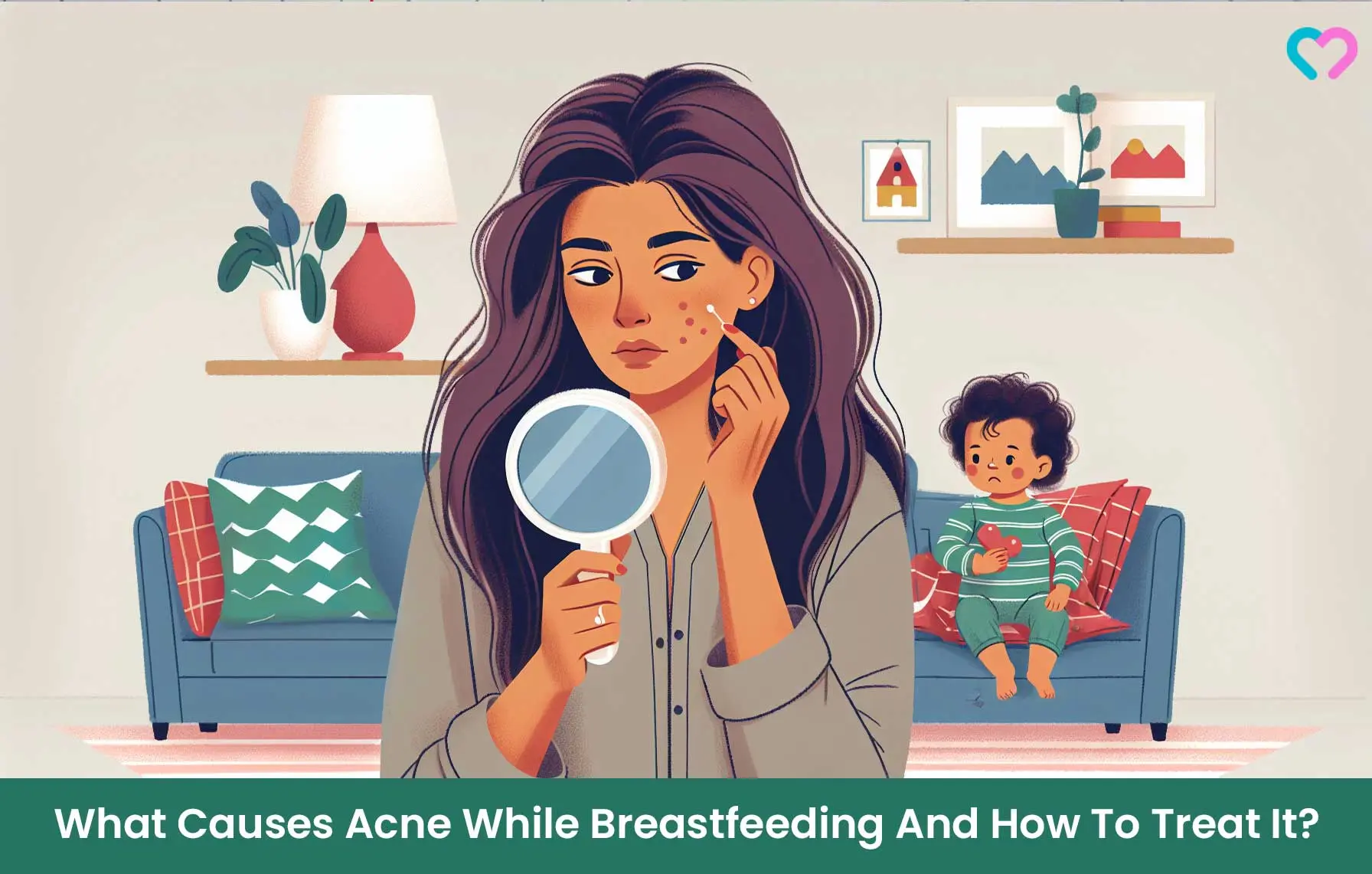
Image: Dall·E/MomJunction Design Team
Are you a breastfeeding mom wondering if it’s okay to use acne treatment and stretch mark cream? Watch this video to find out!
References
1. Acne; Family Doctor Organization
2. U. Tan, B.J. Schlosser, and A.S. Paller, A review of diagnosis and treatment of acne in adult female patients; U.S. National Library of Medicine
3. YL Kong, Hong Liang Tey; Treatment of Acne Vulgaris During Pregnancy and Lactation; ResearchGate
4. What causes acne; National Institute of Arthritis and Musculoskeletal and Skin Diseases
5. Stress and Acne; Acne organization
6. Alicja Kucharska, Agnieszka Szmurlo, and Beata Sinska, Significance of diet in treated and untreated acne vulgaris; U.S. National Library of Medicine
7. What is acne; National Institute of Arthritis and Musculoskeletal and Skin Diseases
8. Rita V. Vora et al., Pregnancy and Skin; U.S. National Library of Medicine
9. Breastfeeding with Polycystic Ovary Syndrome (PCOS); la leche league international
10. Margarita Victoria B Holgado-Galicia et al., Cushing’s syndrome in pregnancy; U.S. National Library of Medicine
11. Acne: What you need to know; Harvard Health Publishing
12. Bassett IB, Pannowitz DL, Barnetson RS, A comparative study of tea-tree oil versus benzoylperoxide in the treatment of acne; S. National Library of Medicine
13. Jung GW et al., Prospective, randomized, open-label trial comparing the safety, efficacy, and tolerability of an acne treatment regimen with and without a probiotic supplement and minocycline in subjects with mild to moderate acne; U.S. National Library of Medicine
14. Lizelle Fox et al., Treatment Modalities for Acne; U.S. National Library of Medicine
15. Sri Agung Fitri Kusuma, Marline Abdassah, Bobby Ellyas Valas, Formulation and evaluation of anti acne gel containing citrus aurantifolia fruit juice using carbopol as gelling agent; International Journal of Applied Pharmaceutics
16. Pauline McLoone et al, Honey: A Therapeutic Agent for Disorders of the Skin; S. National Library of Medicine
17. Tzu-Kai Lin, Lily Zhong, and Juan Luis Santiago, Anti-Inflammatory and Skin Barrier Repair Effects of Topical Application of Some Plant Oils; U.S. National Library of Medicine
18. Naturopathic Approaches to Acne; AANMC
19. Tzu-Kai Lin, Lily Zhong, and Juan Luis Santiago, Acne Papules; Cleveland Clinic
20. Amar Surjushe et al., Aloe vera: a short review; National Library of Medicine
21. Kong YL, Tey HL, Treatment of acne vulgaris during pregnancy and lactation; U.S. National Library of Medicine
22. Treat acne with coconut oil and nano-bombs; American Association for the Advancement of Science (AAAS)
23. Postpartum Acne; Cleveland Clinic
24. Salicylic Acid; Drugs and Lactation Database; NCBI
25. Retinol; Cleveland Clinic
26. What is Acne?Penn Medicine
27. Acne Home Remedies; acne.org
28. Topical Acne Treatments; Mother To Baby
Community Experiences
Join the conversation and become a part of our nurturing community! Share your stories, experiences, and insights to connect with fellow parents.
Read full bio of Yinés Garcia-Taylor
Read full bio of Dr. Ritika Shah
Read full bio of Swati Patwal
Read full bio of Ghazia Shah







